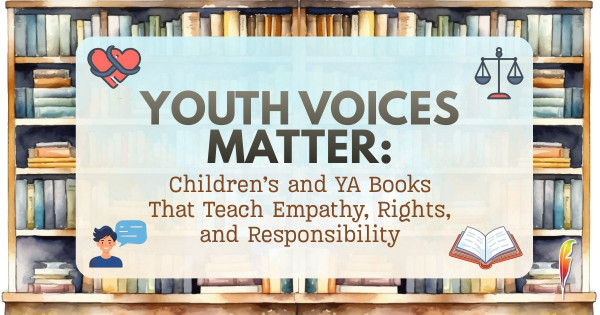.jpg)
Discover the Person Behind the Pen: Cary O’Dell
Step into the captivating world of storytelling as we get to know Cary O’Dell, an author whose words in Men in Pink Collars are engaging readers around the globe. In this exclusive interview, we delve into the inspirations, passions, and creative processes that breathe life into their unforgettable book. Whether you're a long-time fan or discovering their work for the first time, this is your chance to uncover the person behind the pen and get a glimpse into the mind of one of Austin Macauley's most compelling authors.
In your upcoming book, Men in Pink Collars, you’ve captures the stories of men working in roles women have more commonly occupied. What was it that made you want to tell these stories and explore this topic?
Though I’ve never held any of the jobs that I profile in this book—i.e. nurse or social worker, etc.—throughout my career I have worked in areas of women’s history, women’s studies, etc. And, in doing so, I’ve sometimes encountered examples of confusion (being named “Cary” didn’t help!), resistance, some assumptions and, a couple of times, a little hostility. So I began to wonder what do men who actually work in traditionally “female” jobs deal with and how do they overcome it? I was surprised that except for a few fleeting newspaper or magazine articles about men in one or two of these professions, there was almost no scholarship on this subject, while innumerable works existed on women who have entered traditionally male occupations.
From cheerleaders and teachers to flight attendants and librarians, how did you choose which professions to focus on, and were there any that surprised you in the early stages of writing this book?
Some was just common sense. The term “pink collar job” is still in use so I was aware of how female dominated, say, the field of nursing was. But determining others took some old-fashioned Google-ing and review of labor stats. Some were news to me. For example, I have never had an opportunity to really deal with social workers so I had no idea how female-dominated that role is. Meanwhile, having spent most of my adult life working in one type of library or another, I never realized how outnumbered men were there, too: up at the university library level, it’s common to find male, but in grade school, high school and public libraries, men become fewer and fewer. In the more recently designated field of professional children’s librarian, men are almost non existent. And, embarrassingly, originally--and though I go to the dentist regularly--it never crossed my mind that dental hygienist was so female dominated but it is! In fact, the gender make-up of dental hygienists is 98% female. That drove home, to me, how, though we often interact with them, so many of the women (and now men) in some traditionally-female jobs are just “invisible” to us sometimes. I have to work on that.
Did you notice any common struggles or experiences shared by the men you interviewed?
Having interviewed 80 or so of these “Men in Pink Collars,” its hard to say that there’s theme that covers all of them but…. I used to think how so many of the men that I talked to as possessing an exceeding “easy going-ness” in their personality that has allowed them to bypass or ignore any “haters” they might encounter in their professional journey. But I realize that “easy going” is too light of a description. What these men have is actually an emotional intelligence and profound level of maturity that has allowed them to enter and excel in these fields despite distractors of any age or any gender.
Also interesting to me was how many of these men, when they described their entry into these areas, characterized themselves by saying, “Well, I was never the manliest of men….” Gender stereotypes/judgements (for gay and straight men) seemed to be on these men’s minds even as they decided to breach the gender barriers in occupations.
Finally, one other thing that might not be so surprising is the number of men who I interviewed who grew up in single-mother homes or surrounded by sisters or were raised by their grandmother or a similar scenario. With that sort of upbringing, they were used to working with women and able to handle a woman or women as authority figures—something that some men might struggle with.
Do you think perceptions of gendered work are changing today?
Absolutely. I originally had the idea of this book well over 20 years ago but other books and “life”
kept getting in the way. (Additionally, I don’t know how I could have done it two decades ago before the advent of Zoom and the expansiveness of social media, etc.) Twenty (or more) years ago, the men in these occupations would have had very different stories to tell. So these current men have all benefited from those brave earlier men who proceeded them as well as the endurance of feminism and the “post gender” world we are now (mostly) living in. As I say in the book, if a boy in high school goes to his guidance counselor today and says, “I want to be a registered nurse,” they are going to encounter much less resistance than before just as a young girl can go to her GC and say “I want to be a doctor” and not be scoffed at or discouraged. Still, barriers exist. I interviewed a male midwife for the book and sometimes men expressing interest in fields like that are met with suspicion rather than support.
What was the most rewarding part of writing this book?
Honestly, meeting these men. Whether they were older than me, younger than me or whatever, I found these men impressive in their resilience, their humanity. Like many people, my previous definition of “manly” and “masculine” leaned towards the stereotypical football player, etc. But, in speaking to the 80 or so men I interviewed, it changed my view. I don’t think you will find any more “manly” men than some of the men I interviewed. Honestly, as well, speaking to them, it made me want to strive to be better. After concluding many interviews, I couldn’t help but think of the self-improvement I needed. Closing down my laptop, I’d often think, “Cary, you need to up your game.”
What would you like readers to walk away with after they’ve read your book?
Hopefully, several things. One is to see the importance of these jobs regardless of who does them. Secondly, how deeply embedded our gender-based assumptions are despite the fact that we are supposed to “know better” in this day and age. And, finally, an appreciation of what men—all types of men--can bring to these occupations.
Who is Cary O’Dell?
He is a deeply curious person. A graduate of Southern Illinois University in Carbondale, he is the author five previous books. Currently, he works for the Library of Congress and lives in Culpeper, Virginia.
We use cookies on this site to enhance your user experience and for marketing purposes.
By clicking any link on this page you are giving your consent for us to set cookies



